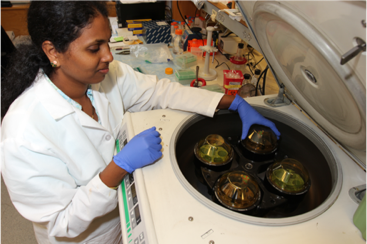
Bennett Lab
Molecular, Genetic, Cell Biologic & Translational Studies of Inherited Retinal Degeneration
Research in the Bennett lab is aimed at elucidating the biology of the retina and vision so that treatments can be developed for blinding disease. The laboratory is translational in nature with a true “from bench to bedside” gene therapy program.

The laboratory develops gene transfer approaches to test treatment strategies for retinal degenerative and ocular neovascular diseases, to elucidate retinal differentiation pathways and to identify pathogenetic mechanisms that lead to blindness. The laboratory moves from proof-of-concept studies all the way to those necessary for testing of safety and efficacy in humans with blinding disease.
The Bennett laboratory translated reversal of blindness in animal models to demonstration of efficacy and safety in children and adults. This work, carried out in collaboration with The Children’s Hospital of Philadelphia and then supported by Spark Therapeutics, led to the first US FDA-approved gene therapy drug for genetic disease, “Luxturna.” This drug was recently also approved by the European Union (EMA). This is also the first approved gene therapy product targeting a retinal disease worldwide. Our work employs a wide variety of cellular and molecular techniques, in vitro and in vivo assays, electrophysiology and behavioral assays to help develop treatments for blinding disease.
© The Trustees of the University of Pennsylvania | Site best viewed in a supported browser. | Report Accessibility Issues and Get Help | Privacy Policy | Site Design: PMACS Web Team.
